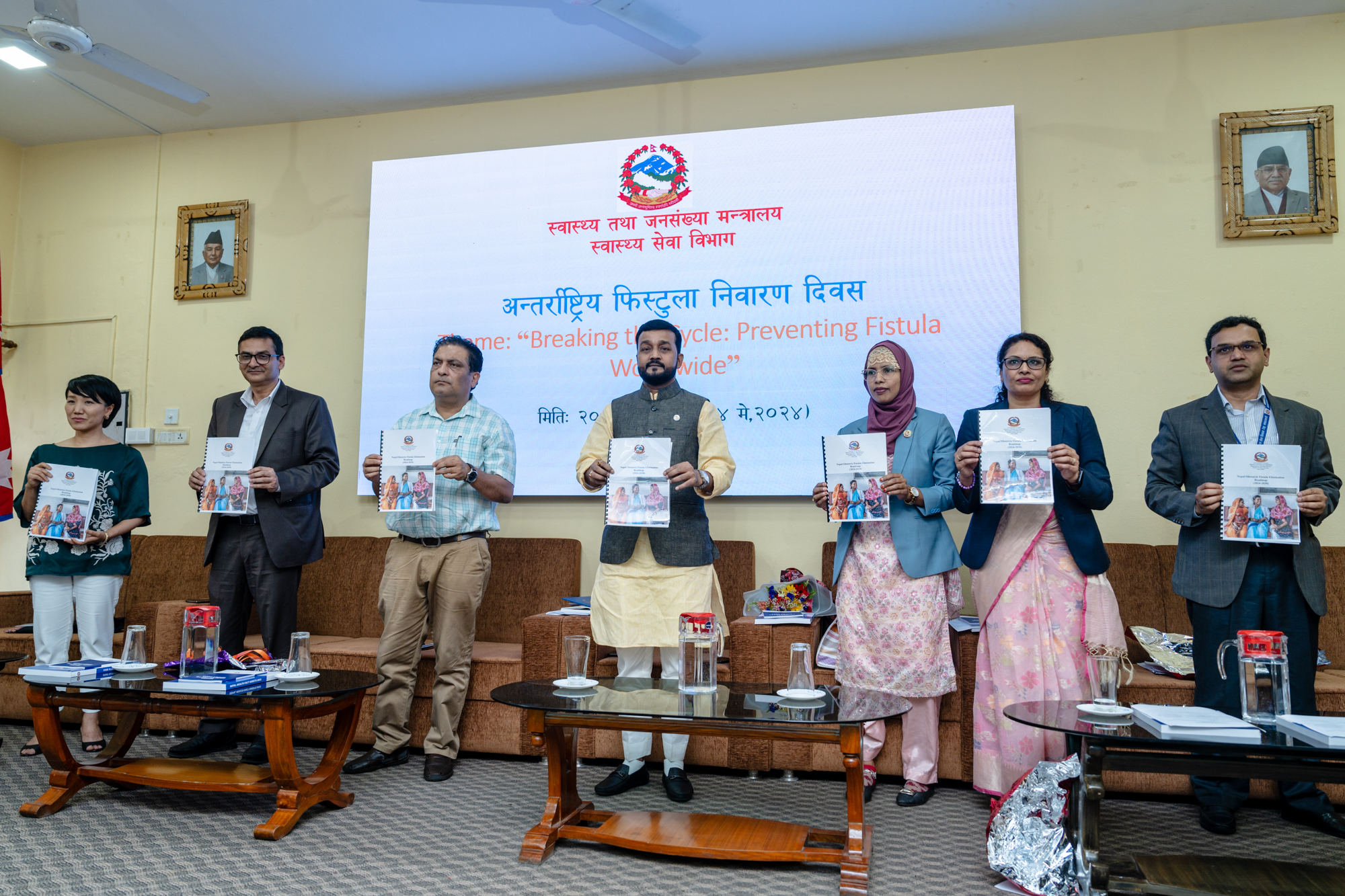

Commemorating the International Day to End Obstetric Fistula that falls on 23 of May every year, The United Nations Population Fund (UNFPA) and the Ministry of Health and Population launched a national roadmap to eliminate fistula by 2030, developed under the leadership of the Department of Health Services. The roadmap outlines key priorities for prevention, treatment, rehabilitation, and social reintegration.
“Due to obstetric fistula, women are forced to endure a life of suffering despite the availability of treatment options, and they often fall victim to stigma and discrimination within their families and communities.
I am encouraged by the development of a roadmap to prevent and treat obstetric fistula, drawing upon available knowledge and national and international experiences. I am confident that its successful implementation will serve as a significant milestone in Nepal’s women’s health sector, said Pradeep Yadav, Hon’ble Minister of Health and Population.
Obstetric Fistula is a hole between the birth canal and bladder or rectum or both, caused by prolonged, obstructed labor without access to timely, quality medical treatment. It often leads to chronic health problems, depression, social isolation and deepening poverty. Ninety per cent of fistula cases result in stillbirths.
UNFPA has been a longstanding partner of the Government of Nepal in the campaign to end fistula. The agency has supported awareness-raising programs, provided free surgeries, and strengthened the capacity of healthcare providers.
“UNFPA is committed to working with the government and partners to accelerate progress towards ending fistula by 2030 in Nepal,” said Won Young Hong, Representative for UNFPA Nepal. “We urge all stakeholders to redouble their efforts to ensure that no woman is left behind.”
To expand access to advanced fistula repair surgeries, UNFPA Nepal together with the Ministry of Health and Population will establish a fistula treatment center at the Paropkar Maternity Hospital. The center will provide state-of-the-art care for women with fistula, through a referral network with other hospitals across the country.
UNFPA pledges its continued support to the government in implementing the roadmap, including through a district-by-district elimination campaign focusing on prevention, case management, and rehabilitation.